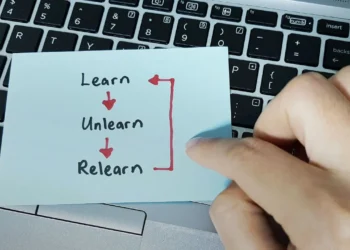 by Ore Babalola
by Ore Babalola
Finishing school, I honestly didn’t have much of an idea of who I was or what I wanted to do. I had sailed through school years relatively successfully by passing exams and being a good student, and when the time came to pick subjects in JSS3 (Year 9), the obvious choice seemed to be to go with sciences as I was ‘smart enough’ to do this and Medicine had seemed like an agreeable preference between myself and my parents.
What exactly informed my choice to do Medicine? Honestly, till this day, I have no idea. At that age, I remember hating hospitals, the smell and the sight of it alone made me cringe, but for some reason I was somehow convinced this was the career path for me. Fast forward to my SS2 Easter holiday and I had my first work experience in a hospital. I still hated the smell of hospitals, but I was excited to finally get a taste of this profession I had desired for myself. During this time, I got to sit in during consultation sessions, spent some time in the pharmacy, and also at the lab. My most memorable experience was being in the delivery room with a lady who was about to give birth. Let’s just say I almost fainted at the sight of new life and ended up needing attention myself…Lol. Needless to say, from that moment on, being a doctor took a back seat in my mind.
Similar to me, many students today find themselves sailing through school on autopilot unsure of the ultimate goal or purpose, but sadly, not many get the chance to experience the workplace early on like I did back then at the age of 14- an experience that ultimately made me question my career path and rethink my future plans. In many parts of the world, the current education system requires students in Year 9 to narrow down and choose subjects that align with a major question they’ve been asked all their life: ‘what do you want to be when you grow up?’. The pressure to decide a whole career path and make such a critical decision around the age of 13 is a whole other conversation, but if this must be done, then my question is this; what exactly is this decision based on? – Does the student make a decision based on their best subject or what they are currently performing best in? Are they to decide based on their strength areas in class or other interests outside of class? Or are they to consider the professions of those within their nuclear and extended family?
If such a critical decision must be made at such an early stage, then appropriate information and opportunities must be provided to these students to enable them to make more informed decisions- this is ultimately where careers education should come in.
So, what is careers education and what does it look like?
Careers education centres around bridging the gap between school and life outside school, it’s the connecting point between theory and practice and the link between education and employment. It is essentially introducing the concept of careers to students alongside formal education by providing them with the relevant knowledge, skills and opportunities that they need, to make informed choices and plans for their future
- Work experience and other forms of employer engagement play a major role in careers education and it has been shown to have significant benefits such as broadening young peoples’ horizons and raising aspirations, exciting children about subjects, increasing motivation and attitude to learning and also reducing the likelihood of unemployment by up to 86%
- Other practical ways that careers education can be introduced into schools include linking careers to the curriculum by bringing subjects to life, highlighting the relevance and real-life application of various topics, hosting career fairs or career talks by parents and professionals, and introducing career counselling/guidance for students. This is by no means an exhaustive list but hopefully one that simply highlights the possibilities of careers education and its application in our schools today.
To conclude, please allow me to rephrase a statement I made earlier; If we require students to make critical decisions about their careers and future by the age of 13 or whilst in JSS3/Year 9, then we also must equally afford them early and effective careers education that will equip them with the relevant knowledge and opportunities to make more informed decisions, or how will they navigate careers without careers education?
References
CEIAG – Careers Education, Informaton, Advice and Guidance (no date) Stockport Academy. Available at: https://www.stockport-academy.org/information/ceiag-careers-education-information-advice-and-guidance
The case for employer engagement in state schools (2019) Education and Employers Taskforce. Available at: https://www.educationandemployers.org/wp-content/uploads/2019/04/Research-summary-website-version.pdf
















































































 EduTimes Africa, a product of Education Times Africa, is a magazine publication that aims to lend its support to close the yawning gap in Africa's educational development.
EduTimes Africa, a product of Education Times Africa, is a magazine publication that aims to lend its support to close the yawning gap in Africa's educational development.